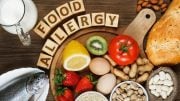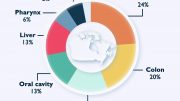
A parent with alcohol problems can greatly increase your risk of food addiction.
According to recent research, your risk of food addiction might be influenced by your parents’ drinking habits.
According to a recent University of Michigan study, those who have a parent with a history of alcoholism are more likely to exhibit signs of food addiction.
These items, which include ice cream, chocolate, pizza, and fries, have disproportionately high levels of refined fats and carbohydrates that may cause some individuals to develop an addiction.
Researchers at the University of Michigan sought to discover whether a parent with alcoholism—a significant risk factor for addiction—predicted a higher likelihood of addiction to highly processed foods.
As many as 1 in 5 people seem to show this clinically significant addiction to highly processed foods, marked by a loss of control over intake, intense cravings, and an inability to cut down despite negative consequences.
“People who have a family history of addiction may be at greater risk for developing a problematic relationship with highly processed foods, which is really challenging in a food environment where these foods are cheap, accessible, and heavily marketed,” said Lindzey Hoover, U-M psychology graduate student and the study’s lead author.
But addictive responses didn’t end with food, as people with food addiction were also more likely to exhibit personal problems with alcohol, cannabis, tobacco, and vaping, the research showed.
Diets dominated by highly processed food and excessive intake of addictive substances are leading causes of preventable death in the modern world. This study suggests that interventions are needed to simultaneously reduce addictive eating and substance use.
“Public health approaches that have reduced the harm of other addictive substances, like restricting marketing to kids, may be important to consider to reduce the negative impact of highly processed foods,” Hoover said.
Reference: “Co-occurrence of food addiction, obesity, problematic substance use, and parental history of problematic alcohol use” by L. V. Hoover, H. P. Yu, J. R. Cummings, S. G. Ferguson and A. N. Gearhardt, 25 July 2022, Psychology of Addictive Behaviors.
DOI: 10.1037/adb0000870









It also could be because the US FDA approved the expanded use of added ‘cultured free’ monosodium glutamate (MSG) as an alleged ‘flavor enhancer’ in 1980 knowing full-well then it would be harmful to a ‘subset of the population’ (FASEB reports on MSG to the FDA) but, apparently, not “how, how many or how soon?” The US obesity/diabetes epidemic presented by 1990 (CDC/NCHS data).
Each of us have the ability to say “NO!”
Blaming someone else for OUR falures is psychological toxicity.
Perhaps some of these PhD’s doing these studies need to read that copy of the DSM on their shelf.
Sam, good thought except that most victims, MDs and PhDs included, still don’t know what to say “NO!” to (e.g. my comment above, minimally).